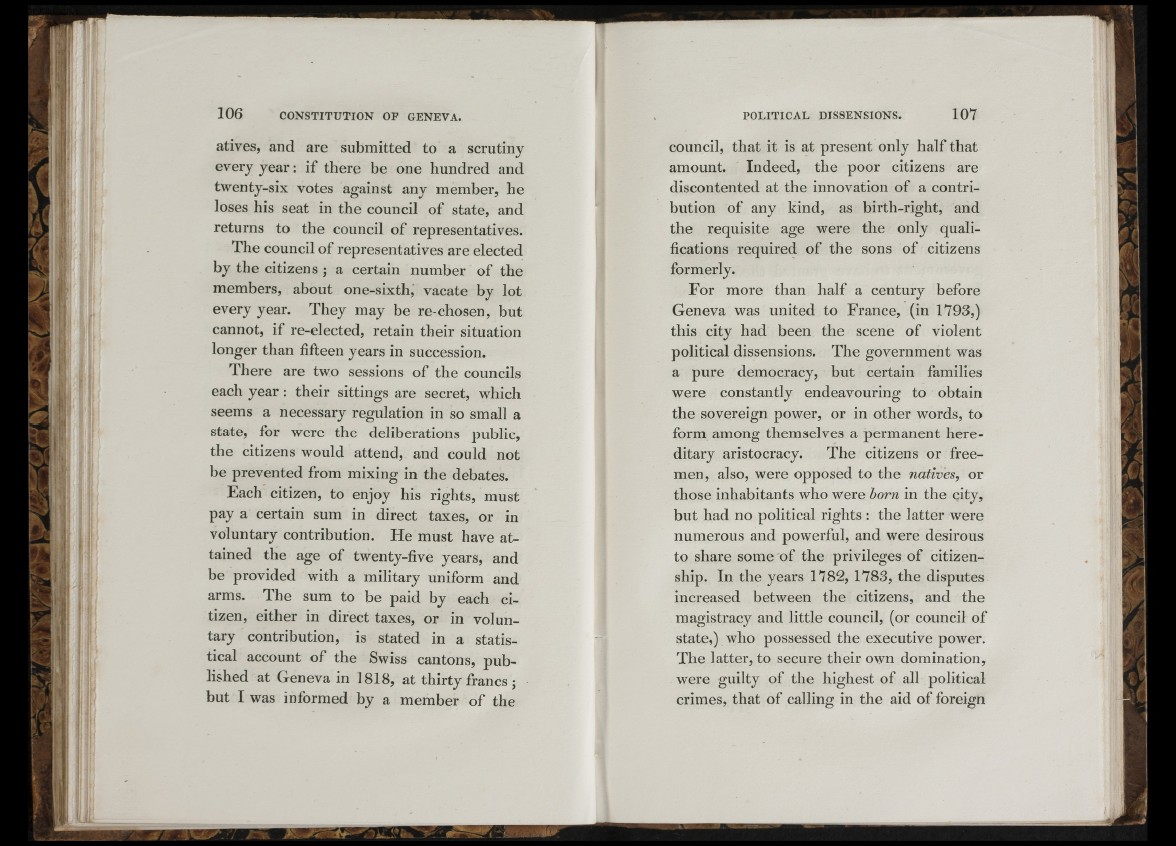
‘I :
atives, and are submitted to a scrutiny
every y e a r: if there be one hundred and
twenty-six votes against any member, he
loses his seat in the council of state, and
returns to the council of representatives.
The council of representatives are elected
by the citizens ; a certain number of the
members, about one-sixth, vacate by lot
every year. They may be re-chosen, but
cannot, if re-elected, retain their situation
longer than fifteen years in succession.
There are two sessions of the councils
each year : their sittings are secret, which
seems a necessary regulation in so small a
state, for were the deliberations public,
the citizens would attend, and could not
be prevented from mixing in the debates.
Each citizen, to enjoy his rights, must
pay a certain sum in direct taxes, or in
voluntary contribution. He must have attained
the age of twenty-five years, and
be provided with a military uniform and
arms. The sum to be paid by each citizen,
either in direct taxes, or in voluntary
contribution, is stated in a statistical
account o f the Swiss cantons, published
at Geneva in 1818, at thirty francs ;
but I was informed by a member o f the
;ic: ■
iL I
council, th at it is at present only half that
amount. Indeed, the poor citizens are
discontented at the innovation of a contribution
of any kind, as birth-right, and
the requisite age were the only qualifications
required of the sons of citizens
formerly.
For more than half a century before
Geneva was united to France, (in 1793,)
this city had been the scene of violent
political dissensions. The government was
a pure democracy, but certain families
were constantly endeavouring to obtain
the sovereign power, or in other words, to
form among themselves a permanent h ereditary
aristocracy. The citizens or freemen,
also, were opposed to the natives, or
those inhabitants who were horn in the city,
but had no political rights : the latter were
numerous and powerful, and were desirous
to share some of the privileges of citizenship.
In the years 1782, 1783, the disputes
increased between the citizens, and the
magistracy and little council, (or council of
state,) who possessed the executive power.
The latter, to secure their own domination,
were guilty of the highest of all political
crimes, that of calling in the aid of foreign